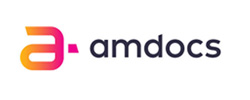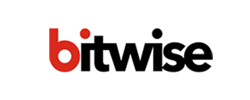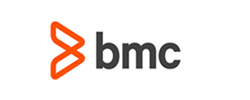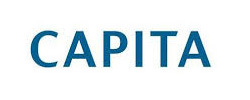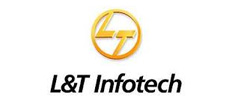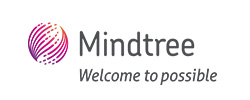- What is Data Visualization
- Business Intelligence tools
- Data Warehousing Basics
- Introduction to Tableau
- Tableau Architecture
- Tableau Installation-Tableau Desktop, Public, Reader
- Features of Tableau Desktop
- Connect to data from Database and files
- Types of Connections-Live and Extract
- Joins and Unions
- Data Blending
- Tableau Desktop User Interface
Elevate your career with Tableau Developer Classes
332 reviews
This comprehensive course is designed for individuals at all skill levels, from beginners to experienced data analysts, seeking to enhance their proficiency in Tableau for data visualization and SQL for database management. Whether you are starting with no prior experience or looking to expand your knowledge in these domains, this course will equip you with the necessary skills to excel. The course begins with fundamental concepts in Tableau, covering data visualization techniques and dashboard creation, before delving into SQL basics and advancing to more complex database management techniques. Participants will learn how to create compelling visualizations, gain insights from data, and effectively manage databases using SQL.
Key Highlights

Certification

Mentor Support

100 % Job Assistance

Projects and Assignments

Interview Preparation

Hands-on Experience

Comprehensive Coverage

Flexible Learning Options
Comprehensive SQL and Tableau Course Overview (Business Intelligence)
Our SQL and Tableau courses at e-Learningz are designed to equip both beginners and professionals with essential skills for effective data management and visualization. In the SQL fundamentals section, you’ll learn the basics of relational databases and SQL syntax, enabling you to perform tasks like querying, filtering, and joining data sets. Advanced SQL techniques cover topics such as transactions, indexing, and security measures, providing a deeper understanding of database management.
Moving on to Tableau basics, we introduce you to the world of data visualization, teaching you how to connect to data sources and create basic visualizations like charts and graphs. As you progress, advanced Tableau techniques empower you to build interactive dashboards, work with complex data sets, and integrate external analytics tools for deeper insights.
Throughout the courses, we emphasize practical application through hands-on projects and exercises, allowing you to reinforce your learning and develop real-world skills. Additionally, our experienced instructors offer expert guidance, helping you navigate challenges and maximize your potential in SQL and Tableau-related roles.
By completing these courses, you’ll gain a strong foundation in SQL for efficient database management and Tableau for impactful data visualization. Whether you’re looking to start a career in data analytics or enhance your existing skill set, our courses provide the tools and expertise needed to succeed in today’s data-driven landscape. Join us at e-Learning and unlock your potential in data management and visualization.
Skills you'll gain
- SQL Proficiency
- Tableau Mastery
- Data Management
- Business Intelligence
- RDBMS
- Understanding of Data warehousing
- Problem-Solving
- Critical Thinking
- Collaboration
Course Objectives
Tableau
RDBMS & SQL
Basics & Advanced
Course Duration : 50HOURS

Introduction to Tableau & Data Connection with Tableau Desktop
Basic Visual Analytics & Geographic Visualizations in Tableau
- Visual Analytics
- Basic Charts: Bar Chart, Line Chart, Heat Map, Tree Map, Scattered Bar Chart and Pie Chart
- Hierarchies
- Data Granularity
- Highlighting
- Sorting
- Filtering
- Grouping
- Sets
- Introduction to Geographic Visualizations
- Manually assigning Geographical Locations
- Types of Maps
Calculations in Tableau & Advanced Visual Analytics
- Types of Calculations (String, Date, Boolean,)
- Built-in Functions (Number, String, Date, Logical and Aggregate)
- Operators and Syntax Conventions
- Table Calculations (Moving Averages, Running totals, Percentile etc)
- Window Function (Window Max, Window Min, Window Avg)
- Level Of Detail (LOD) Calculations
- Parameters
- Tool tips
- Trend lines
- Reference lines
- How to Use Dual Charts
- What is Dual Axis?
Advanced Charts in Tableau
- Box and Whisker’s Plot
- Bullet Chart
- Gantt Chart
- Waterfall Chart
- Pareto Chart
- Sankey chart
- Bump Chart
RDBMS & SQL
Course Duration : 20HOURS

Introduction to RDBMS and SQL
- Understanding the concept of relational databases
- Overview of RDBMS architecture and components
- Differentiating between RDBMS and other database models
Database Design Principles
- Entity-Relationship (ER) modelling fundamentals
- Normalization techniques to ensure data integrity
- Design considerations for efficient database schema
SQL Fundamentals
- Introduction to SQL and its role in database management
- Basic SQL syntax and data manipulation commands (SELECT, INSERT, UPDATE, DELETE)
- Filtering and sorting data using WHERE and ORDER BY clauses
- Working with multiple tables using JOIN operations
Advanced SQL Queries
- Aggregating data with GROUP BY and aggregate functions (SUM, AVG, COUNT, etc.)
- Using subqueries to retrieve complex data sets
- Modifying data with DML commands (INSERT, UPDATE, DELETE)
Data Definition Language (DDL)
- Creating and modifying database objects (tables, views, indexes)
- Defining constraints to enforce data integrity (PRIMARY KEY, FOREIGN KEY, UNIQUE, NOT NULL)
- Altering table structure and managing schema changes
Data Control Language (DCL)
- Granting and revoking privileges to users and roles
- Managing security through user authentication and authorization
Real-world Applications and Case Studies
Applying database management concepts and SQL skills to real-world scenarios
Analyzing case studies to understand practical implications and challenges
Hands-on Projects and Exercises
Practical exercises and projects to reinforce learning
Designing and implementing relational databases
Writing and executing SQL queries to retrieve and manipulate data
Who can apply for the course?
Beginners
Individuals who have no prior IT experience and want to start their IT journey as a Business Intelligence Developer/ Tableau Developer/ Data Analyst
Students
Students pursuing computer science or related fields who want to gain a solid foundation as a Data Analyst.
Professionals transitioning to BI or Data Analyst
Developers or other working professionals who are proficient in other programming languages and want to expand their skills to Tableau and Business Intelligence.
Experienced BI, Tableau developers
Tableau Developers/ Business Intelligence Developers/ Data Analyst/ Business Analyst who are already familiar with Tableau and SQL but want to deepen their knowledge and explore advanced topics and best practices.
Software engineers and programmers
Professionals working in the software development industry who want to add Tableau to their skillset or update their Tableau knowledge.
Enthusiasts and self-learners
Individuals interested in Data Analyst domain and specifically Tableau, regardless of their professional background.

100% PLACEMENT ASSISTANCE
Students Placed With Companies

